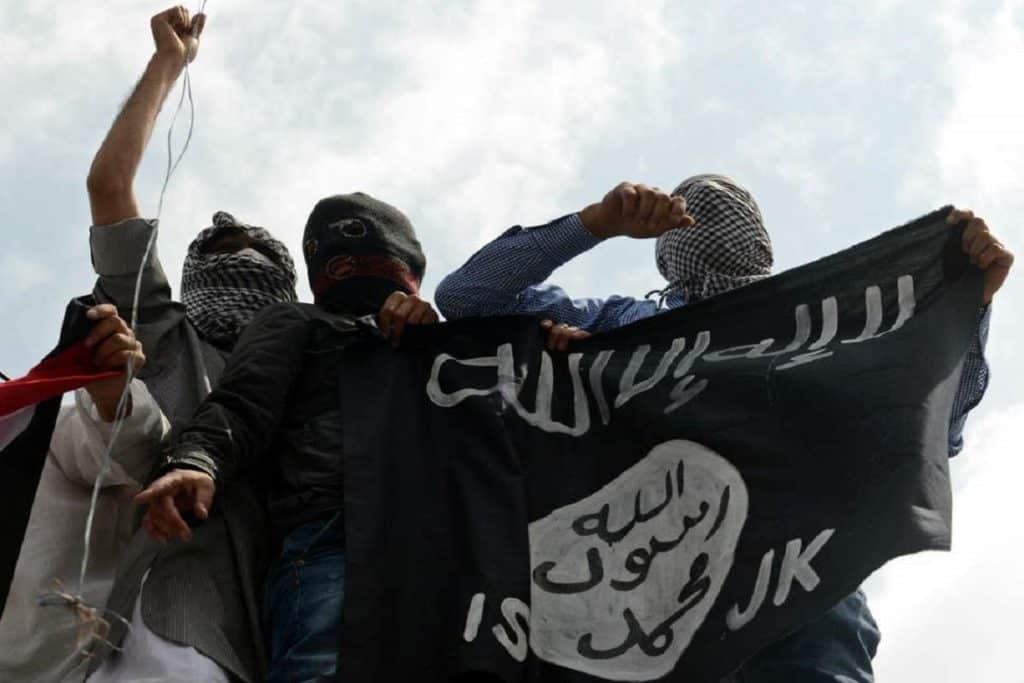By Denis Korkodinov
Amid the spread of the coronavirus around the world, the Islamic State seeks to significantly strengthen its position through public calls for jihad and the organization of terrorist acts in the countries most affected by the pandemic.
The mass panic, created, among other things, thanks to the media, was the basis for the activation of international terrorism groups, the subsequent goal was to use the chance given to them to revive and strengthen their positions. Representatives of the Islamic State, speaking on the Internet, repeatedly emphasized that the coronavirus is a “punishment of Allah sent down to punish opponents of Islam.” And, as the leaders of ISIS, their task in the present conditions is to become the performers of this “punishment”.
According to jihadists, a favorable moment for the implementation of terrorist acts is the universally introduced regime of self-isolation of citizens in their homes, in connection with which it is residential buildings that become the main target of terrorists. Moreover, along with “open” forms of terrorist attacks using firearms, ISIS supporters try to use non-traditional methods in order to cause maximum damage.
One of these methods was the detonation of gas cylinders in residential buildings, as was, for example, undertaken in the Russian cities of Magnitogorsk and Orekhovo-Zuev on March 26 and April 4, 2020. The fear factor of local residents, who are forced to isolate themselves due to the coronavirus pandemic, plays a large role in the practically unhindered implementation of their terrorist activities by ISIS.
In public appeals, terrorists openly declare that under the conditions of COVID-19, the Western world, to which they include, including Russia, was in a state of deep economic crisis. Therefore, from the point of view of jihadists, they should seize the opportunity and deliver a crushing blow to the international coalition.
A convincing example of strengthening the position of the Islamic State is demonstrated by Iraq. So, because of the coronavirus, the United States, Great Britain, Italy, the Czech Republic and France were forced to limit their continents to the Iraqi provinces of Nineveh and Sallahuddin. At the same time, the regions of the north and north-east of Iraq became the hotbeds of the ISIS revival, which again began to threaten official Baghdad and the international community as a whole.
COVID-19, of course, distracts the attention of the whole world from the fight against terrorism. On this basis, the international coalition against ISIS turned out to be vulnerable, since many members of the alliance are infected with coronavirus and cannot continue military service due to health reasons.
Back in March 2020, leaders of the Islamic State publicly called on their supporters to step up activities in Europe and Russia. At the same time, they guaranteed the militants “getting rid of the disease” in the event that they commit jihad in a coronavirus. In addition, they called for the release of ISIS members from prisons. In turn, the al-Issa refugee camp, located in northeastern Syria, significantly softened control over the people there, as a result of which several hundred ISIS supporters escaped from the camp only at the end of March 2020.
Currently, about 20,000 terrorists are detained in Iraq’s prisons, of which about 10 percent are Russian citizens. The general panic caused by COVID-19 strengthens their influence on the prison administration, whose representatives began to fear for their own safety. In the end, there is a great risk that, under the pressure of the coronavirus, these prisoners could escape, resulting in ISIS receiving an additional influx of militants that would threaten the entire international community.
(The views expressed in this article belong only to the author and do not necessarily reflect the views of World Geostrategic Insights).







